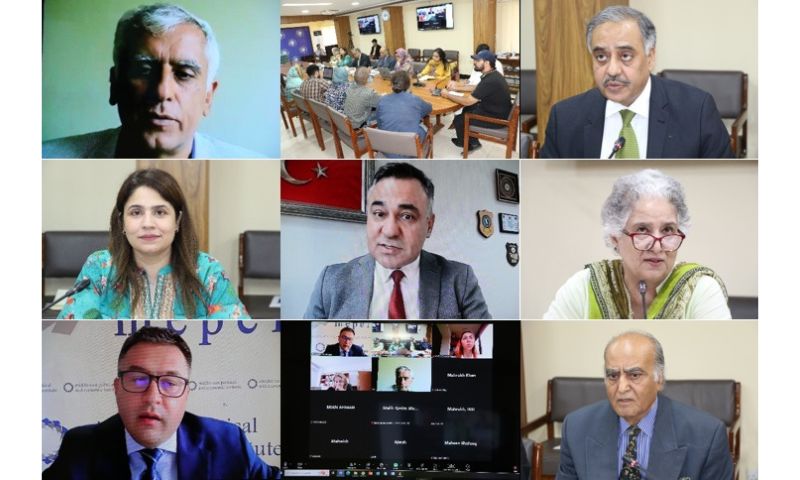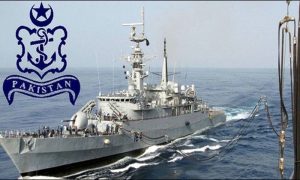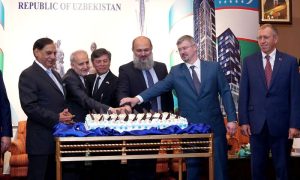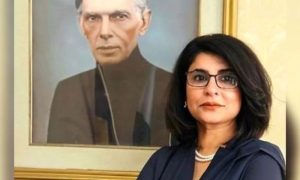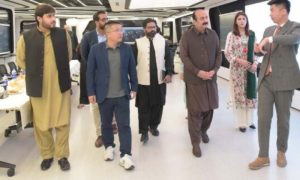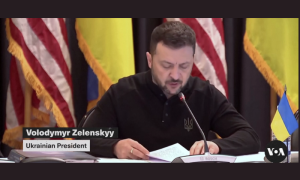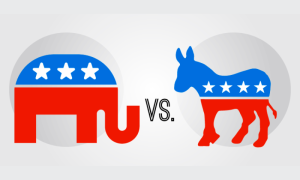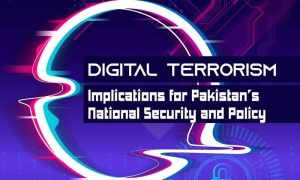ISLAMABAD: Speakers at a seminar highlighted the importance of elections in Iran, particularly given the country’s regional and international Scenario.
The Centre for Afghanistan Middle East and Africa (CAMEA) at the Institute of Strategic Studies Islamabad (ISSI) hosted a webinar, titled “Elections in Iran: Regional and International Insights,” said a press release issued by the ISSI.
Ambassador Sohail Mahmood, Director General ISSI noted that the recent elections, held after the sad demise of President Raisi and Foreign Minister Abdollahian, resulted in the win of Dr. Masoud Pezeshkian with over 16 million votes.
He highlighted the importance of elections in Iran, particularly given the country’s regional and international significance. Ambassador Sohail Mahmood said, Dr. Pezeshkian was a seasoned parliamentarian, former Health Minister, and distinguished academic and surgeon.
He noted that his victory, especially in northern and western provinces with significant minority populations, showed substantial support from Kurds, Turks and Sunnis.
Ambassador Sohail went on to say that Dr. Pezeshkian’s campaign focused on national unity, reform, and international engagement, with priorities like lifting sanctions and reviving the nuclear agreement with the West.
The expert said Dr. Pezeshkian aims to balance ties with all countries, enhance regional partnerships, and explore economic and technological opportunities.
The DG ISSI said that Dr. Pezeshkian’s success will depend on support from national stakeholders, and the Supreme Leader, and would be assisted by a highly experienced diplomat Dr. Javad Zarif.
Director CAMEA Amina Khan said that while Dr. Pezeshkian has made many promises regarding the future of Iran, many are of the view that he will carefully balance promises of change while remaining loyal to Iran’s Supreme Leader, Ayatollah Seyed Ali Khamenei.
She emphasized that under former President Raisi, Pakistan-Iran enjoyed strong relations which saw significant developments such as the opening of border markets and a shift towards barter trade to deepen bilateral economic collaboration.
Dr. Nabi-Sonboli, Senior Research Fellow at the Institute for Political and International Studies (IPIS), Iran noted that Dr. Pezeshkian’s victory was unexpected and signifies a slight shift from the previous administration.
He said the President-elect is expected to continue existing policies with moderate adjustments, focusing on national unity and forming a diverse government. The expert noted that Dr. Pezeshkian’s commitment to peace and diplomacy links economic development with regional stability.
Dr. Flavius Caba Maria, President and Director of the Political Department, Middle East Political and Economic Institute (MEPEI), Romania, expressing his views said the core foreign policy principles are unlikely to change in Iran, though renewed nuclear negotiations are possible. He said President-elect Dr. Pezeshkian would focus on deeper ties with China, Russia, and BRICS, and his commitment to national reconciliation in the Middle East, marking a new era for Iran.
Dr. Murat Aslan, Senior Researcher SETA Foundation for Political, Economic and Social Research, Turkiye highlighted the long-standing stability of Turkish-Iranian ties since the 1639 Treaty of Zuhab. He said Turkish influence in Iran’s ruling elite and stressed the 1979 Islamic Revolution’s initial broad inclusion before conservative control. Dr. Aslan stressed the importance of understanding Iran’s regional policies, particularly after the 1979 revolution which raised concerns in Turkiye.
Ambassador Riffat Masood, Pakistan’s Former Ambassador to Iran highlighted Iran’s unique governance structure, with the Rahbar holding the final authority. She emphasized that preserving the theocratic system was at the core of this structure for ensuring security and stability. Ambassador Masood also dilated on the negative impact of sanctions, the JCPOA deadlock, and intensified opposition to Israel and the U.S. because of regional conflicts like Gaza.
Ambassador Khalid Mahmood, Chairman BoG, ISSI, during his concluding remarks, said that he expects limited changes, as the final authority is not changed, with existing regional policies continuing and some improvements possible.









